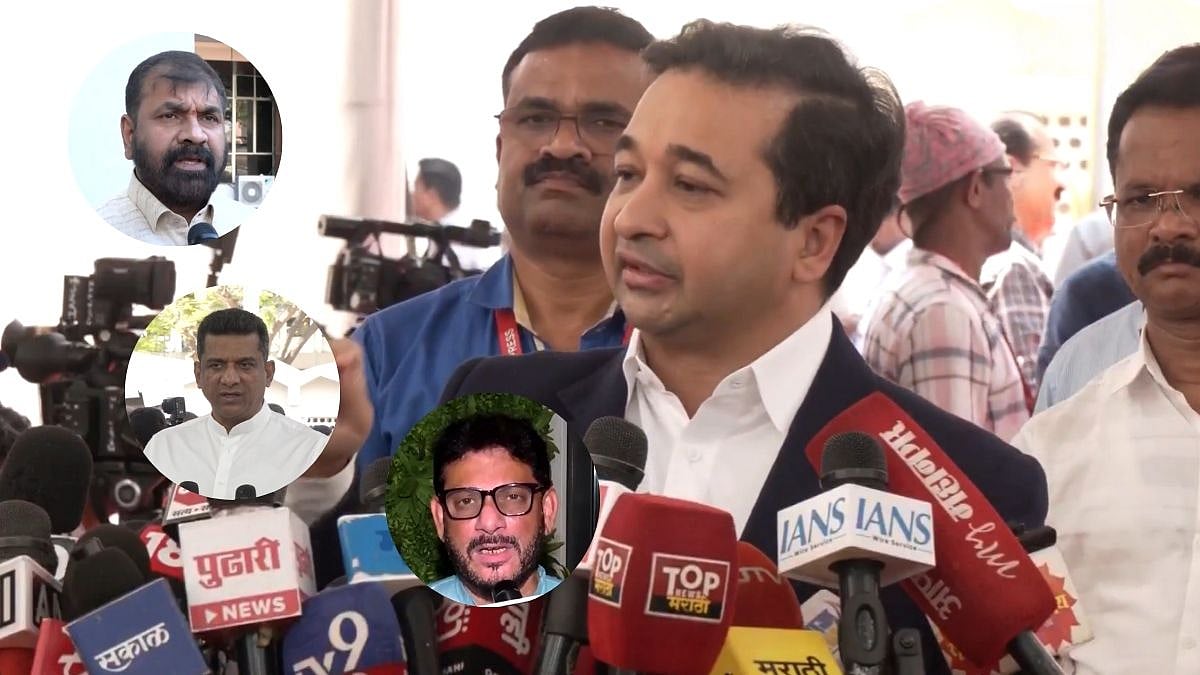It cannot be a coincidence that there has been a spurt in communal tension, violence and clashes in the past year in Maharashtra since the double-engine government of Eknath Shinde and Devendra Fadnavis took oath of office after splitting the Shiv Sena and dislodging the Maha Vikas Aghadi government. Recent incidents underscore anecdotal and research analysis that communal incidents show an uptick when the Bharatiya Janata Party (BJP) moves into the election campaign mode; both the Maharashtra Assembly and general elections are on the next year’s calendar. Every incident seems to be a stray one, unconnected to the larger machination of fomenting communal trouble, but a closer examination shows a pattern that is hard to ignore.
The recent controversy at Trimbakeshwar temple, one of the 12 Jyotirlings in India near Nashik, is a case in point. After a surreptitious attempt to enter the temple by a minority group seeking to allegedly offer a ‘chadar’, a ritual practised in Islam especially in certain sects, which the temple authorities claim was stopped by security guards, there is a First Information Report (FIR) registered under Sections 295 and 511 of the Indian Penal Code. Deputy Chief Minister Fadnavis waded into this and ordered a Special Investigation Team probe. However, locals claim that there has been a long-honoured tradition of Muslims offering incense sticks at the steps of the temple, a practice which the community will now cease, but there was no attempt at entering the temple. The SIT probe will hopefully be impartial and reveal the truth.
Be that as it may, Trimbakeshwar tension fits into the engineered communal tension since the Shinde-Fadnavis government took charge – it announced a panel to track and check interfaith marriages in the state, a series of nearly 50 Hindu Jan Akrosh Morcha rallies were held across the state in nearly every district from November to March with BJP’s leaders participating and watching as marchers openly called for economic boycott of Muslims, there was violence in Jalgaon and Aurangabad on the occasion of Ram Navami last month, parts of Akola district were engulfed in communal violence this week after communities clashed over an Instagram post. The Trimbakeshwar controversy is one more incident that polarises the electorate. Shiv Sena accused the BJP of setting up “a laboratory of riots” to disturb social peace before elections just as it had split the Sena to form the government. Ideally, the union government should have kept an eye on the rising tensions but, in this case, it would be expecting the cat to guard the milk.
Rising heat demands action
It is no secret that the world is getting warmer faster than it ever was, heatwaves are getting more intense even in places that did not suffer them earlier, and that warmer oceans are likely to trigger stronger cyclones. The recent report of the World Meteorological Organization (WMO) should set alarm bells ringing across all the governments around the world. It has projected that the annual mean global near-surface temperature for each year between 2023 and 2027 is likely to be 1.1 to 1.8 degrees C higher than ever before and there is a 66 percent chance that the these will exceed 1.5 degrees C above pre-industrial levels in at least one year before 2027. These chilling projections must be seen in the context of what is now blindly parroted around the world – that the world cannot afford to breach the 1.5 degree C threshold in global warming, set by the Intergovernmental Panel on Climate Change (IPCC).
However, given the path that the world’s economies are currently on and the climate policies of governments around the world, including and especially the developed nations, the world seems on track to raise the heat by 2 degrees C in the coming decades. The widely devastating impact of this will be felt by the poorer nations – Pakistan which contributes half percent of global emissions suffered inordinately during the floods last year – and by marginalised and vulnerable people in every country given that they are less equipped to brace for impact of extreme weather events. The WMO projections must be taken seriously in India, at every level of the government, and policies and action plans drawn up or implemented. Climate change does not respect national borders or economic class, its devastating impact is felt across the board. There is no gain in merely talking about climate policies and measures any more, governments have to walk the talk.





